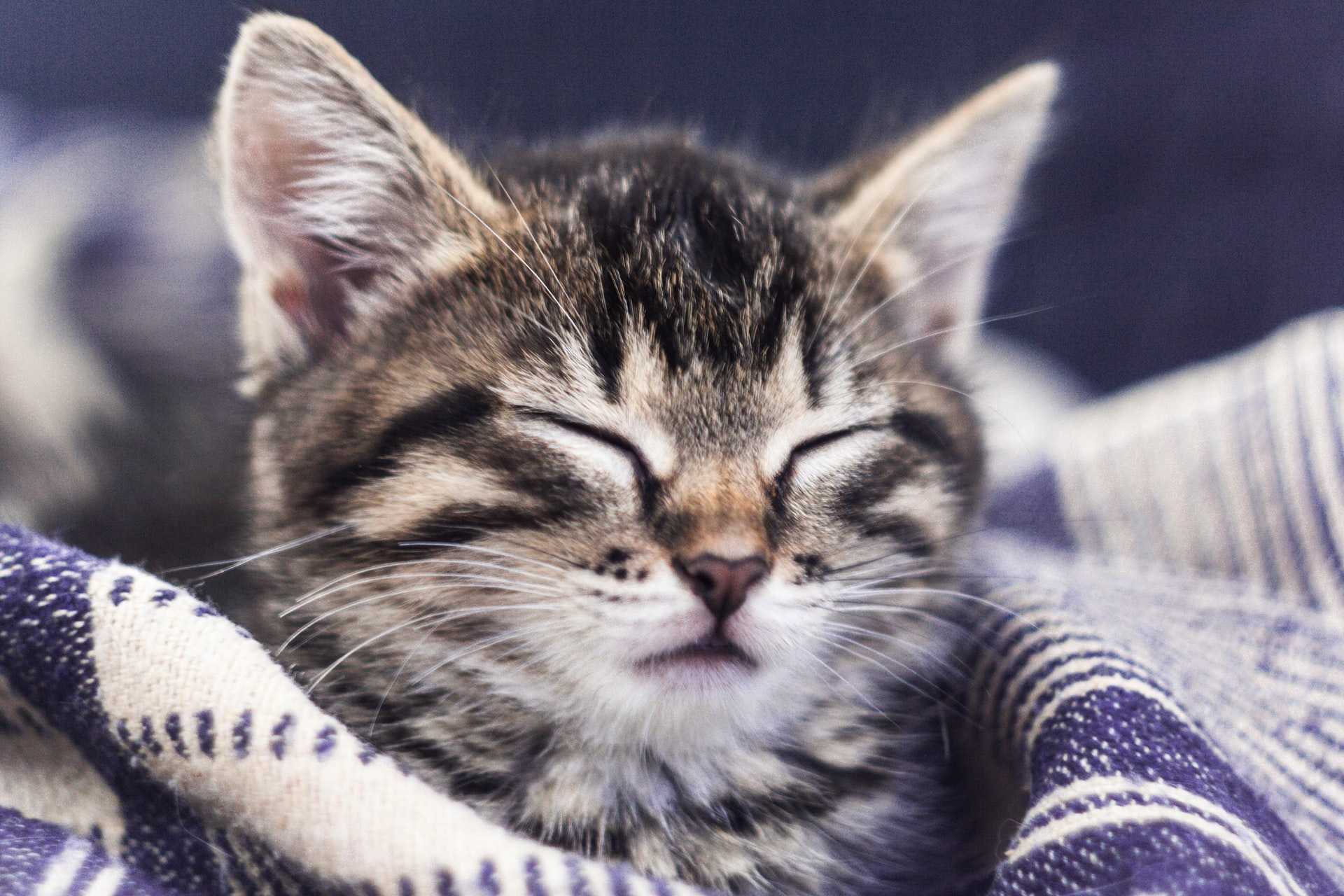No products in the cart.
Why do cats purr?
by WadoSam
 There are several reasons why cats purr. We usually assume that they purr with satisfaction. But that is not the only reason. Research shows that purring is probably a means of communication and also has a self-healing effect. Moreover, these comforting mustache sounds are right for them and us.
There are several reasons why cats purr. We usually assume that they purr with satisfaction. But that is not the only reason. Research shows that purring is probably a means of communication and also has a self-healing effect. Moreover, these comforting mustache sounds are right for them and us.
Your cat friend may purr when you stroke his coat, but cats also purr when they are scared or feel threatened, such as during a vet visit. Veterinarian Kelly Morgan explains:
“People laugh when they are nervous when they want something or when they are happy, so maybe purrings have the same calming effect on cats.”
A cat’s purring starts in its brain. A continually neural oscillator sends messages to the larynx muscles, causing them to vibrate at a rate of 25-150 vibrations per second. That causes the vocal cords to separate as the cat inhales and exhales, producing the whirring noises.
Purring or roaring
But not all cats can purr. Domestic cats, some feral cats, and even hyenas, raccoons, and guinea pigs can purr. But cats can’t roar and vice versa. That’s because the structures around the larynx of roaring cats aren’t stiff enough to purr.
Roaring cats develop this way for good reason. These cats move a lot to catch prey. They build their roars to protect their prey and their territory. Purring cats are smaller and are generally loners that don’t have to compete for prey. They use scent to demarcate areas and do not need extensive communication.
Means of communication
However, your cat can also purr to communicate with you. According to finders at the University of Sussex, domestic cats can suppress a plaintive cry that irritates their caretakers by purring. They cannot use irritation because they want to appeal to the caring instincts of their owners.
The team find out the sound spectrum of 10 purring cats and found an unusual peak in the frequency range, corresponding to the baby’s cries. Karen McComb, who led the study, says cats take full advantage of people’s innate tendency to respond to howling sounds. Dr. Benjamin L. Hart, a vet, explains that cats learn to do this, so people feed them sooner.
What about pain ?
Although we usually see it as an expression of satisfaction, cats can purr even when they are in severe pain, for example, after a severe accident or during delivery. Some people interpret the purring of a severely injured cat at the vet as a sign that the cat wants to live. Most likely, this cat is only trying to reassure itself. Cats can also purr in the last phase of the dying process.
Self-healing
Cat purring may be more than just a way to communicate. Scientists such as Elizabeth von Muggenthaler, a bioacoustic researcher, believe that cats purr to heal themselves.
She says frequencies between 24 and 140 vibrations per minute are therapeutic for bone growth, pain relief, and wound healing. She recorded a variety of purring sounds, including those of domestic cats, ocelots, cheetahs, and cougars. She found that the purr sounds all fell in the area for anabolic bone growth.
Good for everyone
Purring is not only good for cats: it is also healthy for cat owners! Studies show that cats are better for relieving stress and lowering blood pressure than other pets. A 10-year study from the University of Minnesota Stroke Center found that cat owners are 40 percent less likely to have heart attacks than non-cat owners. And purring can play a role in this.
“Purring is an auditory stimulus that people attribute to peace and tranquility,” said Dr. Rebecca Johnson, director of the Research Center for Human-Animal Interaction. “It positively strengthens us and can contribute to a completely relaxing effect when dealing with our cats.”
Special purring
Smokey recognized a place in the record books with purr sounds of 67.7 decibels. But on previous occasions, purr noises of 92.7 decibels have already been recorded, which is equivalent to the sound of a lawnmower or hairdryer.
Purring is the most familiar cat Sound. Yet we know least about it, such as cutting grass, chirping, chattering, hissing, and growing. Yes, cats fade when they are satisfied. When you curl up in the sun, you can hear a soft rumble as it breathes in and out.
How Dental Care is important for our dogs and cats?
May 26, 2020

 Euro (€ )
Euro (€ ) United States (US) dollar ($USD )
United States (US) dollar ($USD )



Leave a comment